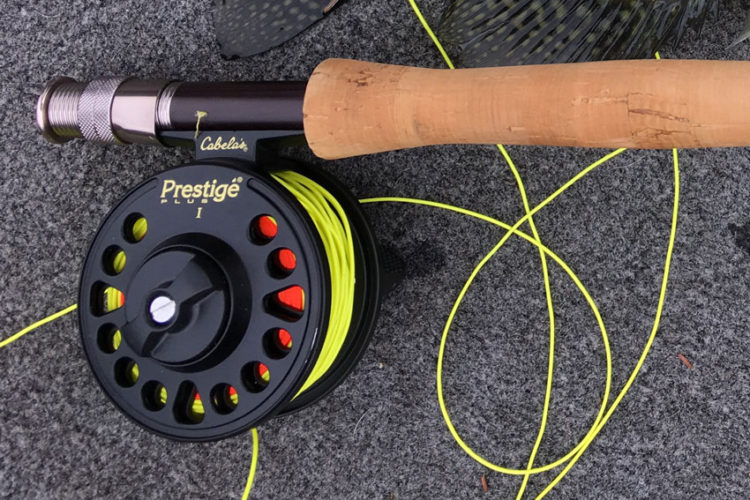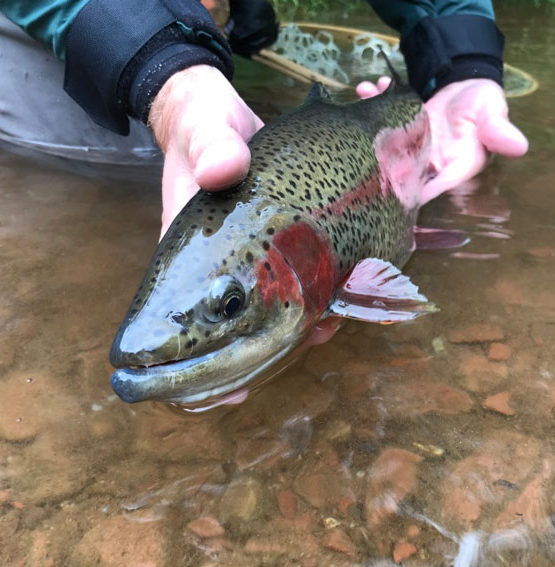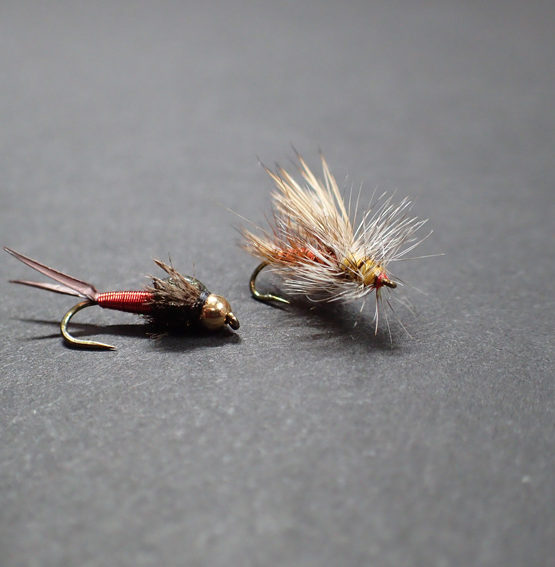In fly fishing, there is just something wonderful about a clean fly line. It floats well, slides smoothly through your guides when you’re casting, and makes mending your line a much gentler process. So, how often should you clean your fly line?
For optimal performance, you should clean your fly line a minimum of 2 to 3 times per year. This, however, is just a guideline. For instance, if you fish nearly every day, then you should probably clean your fly line once a week. Whereas, if you only fish a couple times a season, then cleaning your fly line once a year may be sufficient.
Also, if you spend a day fishing murky, muddy water, then it’s probably in your best interest to give it a cleaning. Honestly, there is no harm in cleaning your fly line, so if you want to clean yours after every day on the water, go right ahead. That might be a little over the top, but you know what they say… clean fly line, clean soul.
Ok, so maybe I just made that up, but I think it’s going to catch on within the fly fishing community.
Related Content:
- How To Keep Dry Flies From Sinking: 5 Simple Tips
- How Long Does Tippet Last? (Plus 5 Tips To Make It Last Longer)
- What is A Biot? Tying Flies With Goose And Turkey Biots
- What Is An Attractor Fly? (With 10 Examples)
- Why Is Fly Fishing Addictive?
- 9 Killer Nymphing Tips For Beginners
How Do You Know When You Need To Clean Your Fly Line?
For experienced anglers, a dirty fly line stands out like a sore thumb. Seriously, all it takes is a couple casts to identify a fly line in need of a wash.
But, if you’re new to fly fishing, and have only spent a few days on the water, then it might be hard to tell when you should clean your fly line. So, in this next section, I am going to give you a couple things to look out for that will let you know it’s time to give that neon, fish-catching-string a bath.
Your Line-Holding Finger Is Dirty
The most obvious sign that you need to clean your fly line, is that it leaves a little black streak in the crease of your line-holding finger.
If you aren’t sure what I’m talking about, then picture yourself casting a fly rod, with a loop of fly line dangling from your reel. Your line-holding finger is typically the ring finger on your casting hand that you use to hold the excess line in case of a hook-set.
When you are stripping a dirty fly line through your finger all day long (wow, that sounds naughty), it will leave a residue in the crease of your top joint. And when that happens, it’s time for a cleaning.
Your Fly Line Keeps Sinking
If you are fishing, and notice your fly line isn’t sitting nice and perky on top of the water, then chances are, your line needs to be cleaned. Now, this isn’t the case every time. If you are fishing with an old line that is cracked and past its prime, then you may just need to buy a new one.
But, if your line is relatively new, and it just won’t float, then you should opt for cleaning.
When fishing a river, a dirty fly line will often pull your dry flies under, or lag behind a nymph rig. This can disrupt a good fly presentation, and lead to a slow day of fishing.
If you are fishing stillwater, (i.e. a lake or a pond) then a sinking fly line will be pretty obvious as well. The worst part is, a dirty fly line that sinks in stillwater can lengthen the time it takes for your line tension to reach a fish when it comes time to set the hook. Not good.
4 Situations That Cause Your Fly Line To Get Dirty
It’s important to know the signs of a dirty fly line. But, better than that, it’s important to know the situations that lead to a dirty fly line in the first place.
In this next section, I am going to cover a few different fly fishing situations that tend to cause your fly line to get dirty.
Saltwater Fishing
Saltwater might not leave the same ‘dirty-looking’ residue on your fly line that dust and dirt do, but it can wreak more havoc on your fly line than anything. So, if you are going to be doing some saltwater fishing, and you want to get the most out of your fly line, it is a good idea to clean your fly line after every outing; or at least every other outing.
Given the chance, saltwater will cause a fresh, clean fly line to crack and sink, which you don’t want. And since cleaning only takes a few minutes of effort, it’s a pretty good trade-off when you consider how long it can extend the life of your fly line.
Casting While Standing In Mud
If you do the majority of your fly fishing standing on the muddy bank of a river, lake or pond, you should plan to clean your fly line a little more often. Think about it, when you stand in mud, that’s exactly where your slack fly line is sitting all day too.
In other words, if your boots are dirty at the end of a day of fly fishing, then your fly line is probably dirty too.
Fly Fishing From a Boat
Fly fishing from a boat seems like it should be one of the cleanest situations for a fly fisherman. And yet, for some reason, my fly line is never dirtier than it is after a day or two of boat fishing.
It’s because the bilge of a boat tends to gather quite a bit of dirt, dust and just general grime. Whether it’s the algae from the bottom of your boots, the dirt that evaporated water leaves behind, or just dust in the wind — “…you’re my boy, Blue!” — fly line gets dirty when fishing from a boat. (That was an Old School reference, for those of you wondering if I have Tourettes.)
Muddy Water
The most obvious cause of a dirty fly line is muddy water. If you spend a long day fishing a river or lake with anything but crystal clear water, then it wouldn’t hurt to clean your fly line. Honestly, you’d be surprised how much gunk will gather on your fly line after a day of even slightly-murky water.
I can think of any number of times that I forgot to clean my fly line after fishing a river that looked like chocolate milk, and suffered the agony of a dirty, sinking fly line the next time I went out. So, learn from my mistakes and clean your fly line after you fish muddy water.
Bottom Line
You should get in the habit of cleaning your fly line on a regular basis. It might seem like a small, insignificant task, but it can make all the difference the next time you go fishing.
How often do you clean your fly line? Be sure to comment below. We love hearing from our readers.










